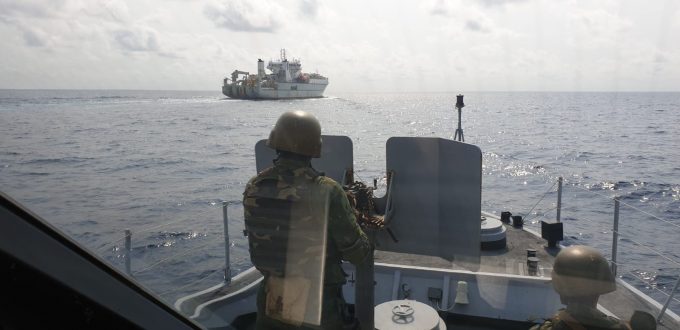Despite sourcing shifts, 'don't write-off China', says CMA CGM CCO
China cannot be written off completely from supply chains, despite tension with the US and ...

Ghana’s minister of information, Kojo Oppong Nkrumah, has called for an international response to the Gulf of Guinea piracy problem, which is costing regional economies $2bn a year, according to a recent report.
Ninety five percent of all kidnappings in 2020 occurred in the region, with 27 out of 28 incidents in African coastal waters of the Gulf, according to the United Nations Office on Drugs and Crime report.
Pirates of the Gulf of Guinea: A Cost Analysis for Coastal States was published ...
Volcanic disruption at Anchorage could hit transpacific airfreight operations
Macron calls for ‘suspension’ – CMA CGM's $20bn US investment in doubt
Forwarders stay cool as US 'liberation day' tariffs threaten 'global trade war'
Shippers snap up airfreight capacity to US ahead of tariff deadline
De minimis exemption on shipments from China to the US will end in May
Tighter EU import requirements proving 'a challenge' for forwarders
Looming Trump tariffs will create 'a bureaucratic monster' for Customs

Comment on this article